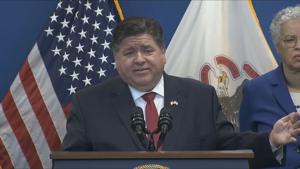(The Center Square) – More than 300,000 Illinois residents stand to be cleared of all outstanding medical debt through the creation of the Medical Debt Relief Pilot Program Fund ready to be sent to the governor.
Sponsored by state Sen. Mike Simmons, D-Chicago, House Bill 5290 seeks to alleviate medical debt for families across the state residing in households with individuals falling below 400% of the Federal Poverty Level or saddled with medical debt equating to 5% or more of their household income.
“It makes people afraid to go to the doctor, afraid to follow up on chronic illnesses that need consistent care when people are getting all kinds of bills every time they go to the hospital that they will never be able to pay,” Simmons told The Center Square.
If approved by the governor, the five-year pilot program will work with a nonprofit to use $10 million to pay off up to $1 billion in medical debt.
“This measure will set the slate ocean for so many people in our state and about 90% of people who currently have medical debt will be able to see relief through this measure,” Simmons said.
In the House, state Rep. Kelly Cassidy, D-Chicago, carried the bill where she highlighted one of her favorite things about the program.
“It also gives the [Illinois Department of Healthcare and Family Services] the opportunity to accept private funds and charitable funds to make those available as well,” she said.
GOP lawmakers like state Rep. Chris Miller, R-Oakland, are openly expressing regret and concern about things having come to this.
“One thing we need to remember is that Illinois is broke and people are leaving,” Miller told The Center Square.
State Rep. Brad Halbrook, R-Shelbyville, supported the concept for constituents in central Illinois strapped with such debt, but questioned other priorities.
“If this is a worthy program, that it goes to provide some relief for these individuals and again not spend hundreds of millions or billions of dollars on a population that are here illegally,” Halbrook said during debate last month.
Republicans are critical of the state continuing and increasing the budget for non-citizen health care that is subsidized by Illinois taxpayers.
Cassidy said the bill is silent on whether those benefiting from the taxpayer-subsidized debt relief program have to be citizens of the United States.
During a news conference in Chicago in April, Pritzker said 14% of the state’s population has medical debt in collections with minority communities disproportionately impacted. He called medical debt a “uniquely American issue.”
“It’s preventing individuals and families from attaining financial stability,” Pritzker said. “And, research shows it’s also having day to day impacts for all the affected individuals like emotional distress and difficulty meeting basic needs.”
However, a study released in April by the National Bureau of Economic Research concluded while there is a statistical significant reduction in payment of existing medical debt, there is “no impact of debt relief on credit access, utilization, and financial distress on average” and “no effect of medical debt relief on mental health on average.”
It’s estimated nearly two million Illinoisans have more than $4 billion in medical debt.
Greg Bishop contributed to this report.







